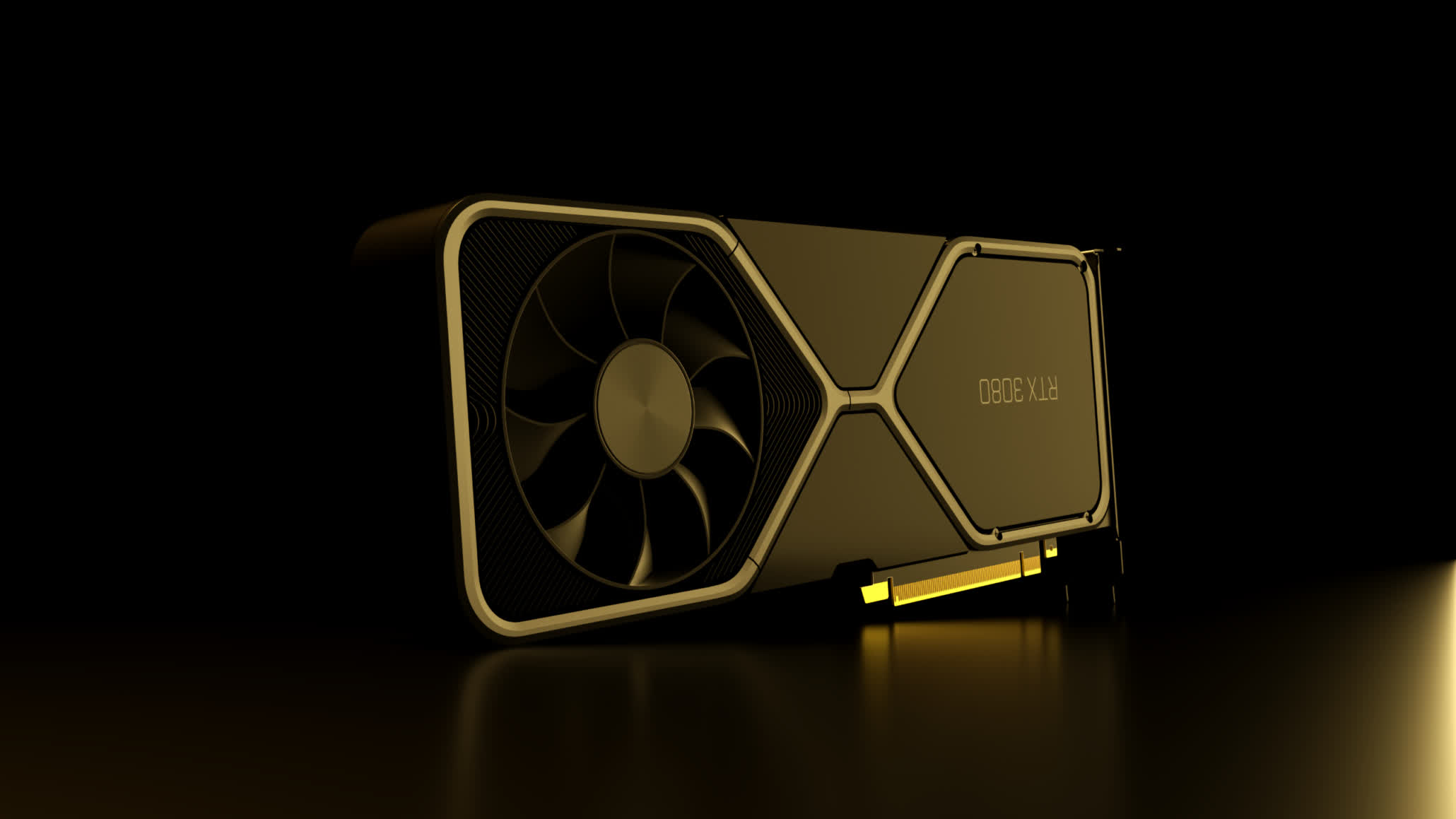Rumor mill: It's virtually impossible to get your hands on anything gaming hardware-related these days -- whether it be a fancy new next-gen console or a high-end video card. The cryptomining resurgence, combined with supply chain issues tied to the pandemic, are contributing factors. However, if we're lucky, we might see some new GPU contenders enter the fray soon: rumors suggest an Nvidia RTX 30-series refresh is coming down the pipeline.

The latest cause for this rumormongering comes courtesy of HP. On the official webpage for its upcoming HP Envy 34 AIO PC, which will run Windows 11 on "up to" an Intel 11th-gen i9 CPU, the company briefly referenced the ability for customers to kit the machine out with up to an RTX 3080 Super. The word Super was quickly pulled from the page, but not before Redditor minty-hippo got their hands on a screencap.
It's possible, of course, that HP's web designer simply made a mistake -- typos are not uncommon in this industry, after all. However, that is a pretty dramatic mistake to make, especially with how hungry for part news PC hardware fanatics are lately. You'd think this sort of thing would be more closely monitored.
At any rate, this little slip-up, even if it isn't intentional, also lines up with what well-known leaker kopite7kimi has said in recent weeks. They believe a 3090 Super, 3080 Super, 3070 Super, and 3060 Super are all in the works, though they feel the 3090 Super could carry a different moniker on release.
Let's make a summary.
— kopite7kimi (@kopite7kimi) September 22, 2021
3090S 10752 24GB G6X
3080S 8960 12GB G6X
3070S 5888 8G G6X
3060S 5632 12G G6
Although I doubt the specs of some of them and the name of 90S.
👀👀👀
The 3080 Super is rumored to have 8,960 CUDA cores, 70 streaming processors, and 12GB of GDDR6X VRAM. As a reminder, the existing 3080 has 8,704 CUDA Cores and 10GB of VRAM, while the 3080 Ti has 10,240 CUDA cores and 12GB of VRAM. In theory, that could mean that the 3080 Super is only a tad faster than its counterpart, but that's not actually such a bad thing.
If the 3080 Super, and the other 30-series Super variants, follow in the footsteps of their 20-series counterparts, they will likely replace the baseline 30-series cards at either the same or a slightly increased price. The old cards could be phased out, and the new ones would take their place in the manufacturing pipeline. In other words, we could be paying the same for better performance, and, importantly, more VRAM.
We will just have to wait and see how many of these rumors hold water. If any are confirmed, you can be sure we'll keep you in the loop.
https://www.techspot.com/news/91372-hp-briefly-mentions-rtx-3080-super-envy-34.html